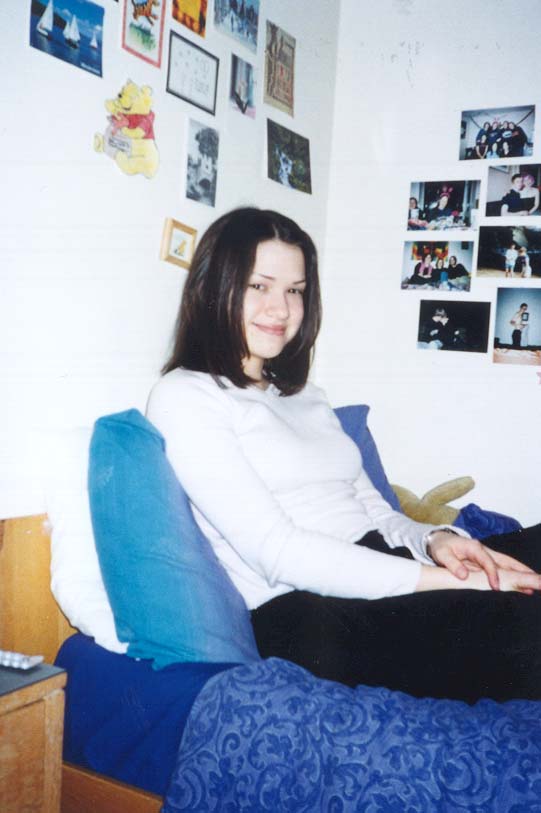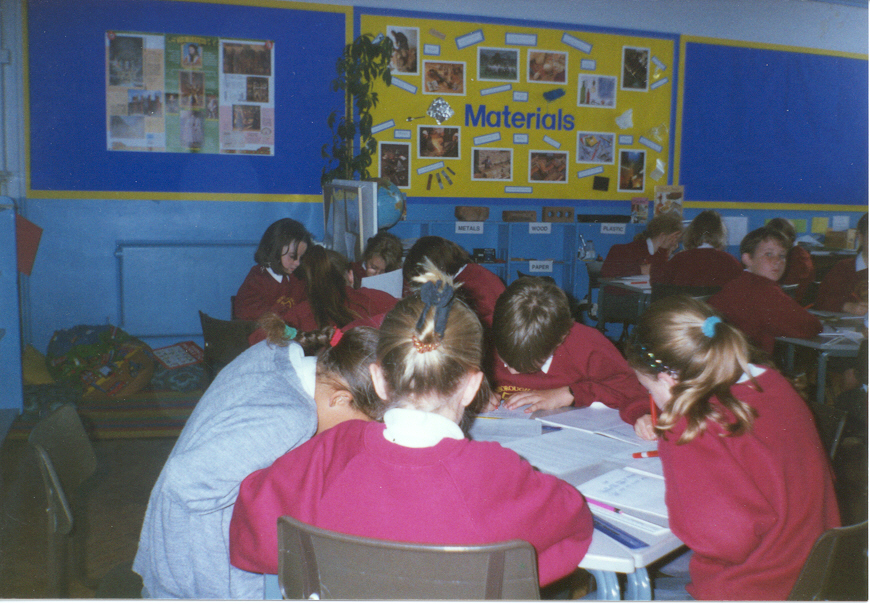
Fiona

Fiona attended a mixed comprehensive school in Cumbria

![]() She
was not completely sure whether there was a link between social class and
aspirations, though she did think that pupils with a higher class background may
be more likely to go to university 'because maybe their parents did'.
She
was not completely sure whether there was a link between social class and
aspirations, though she did think that pupils with a higher class background may
be more likely to go to university 'because maybe their parents did'.
![]() When
talking about upper class aspirations Fiona expressed the view that 'if they
have loads of money they might not see the need to have any ambition'.
When
talking about upper class aspirations Fiona expressed the view that 'if they
have loads of money they might not see the need to have any ambition'.
![]() She believed that it 'certainly seemed' as if top rated universities and
selective schools were more
likely to select their pupils from the upper classes rather than the working
class.
She believed that it 'certainly seemed' as if top rated universities and
selective schools were more
likely to select their pupils from the upper classes rather than the working
class.
![]() Fiona
made autonomous choices of her A Level subjects with the exception of General
studies. No mentoring system was offered at her school.
Fiona
made autonomous choices of her A Level subjects with the exception of General
studies. No mentoring system was offered at her school.
 Fiona believed that there was a possible link between the ambitions of the
parent and those of the child and that, as working class children were less
likely to have parents who attended university, as a result they themselves were
less likely to go on to Higher Education.
Fiona believed that there was a possible link between the ambitions of the
parent and those of the child and that, as working class children were less
likely to have parents who attended university, as a result they themselves were
less likely to go on to Higher Education.
 She only experienced teaching on different cultures in Religious and Social
Studies.
She only experienced teaching on different cultures in Religious and Social
Studies.
 At Fiona's high school no obvious stereotyping of races and no favouritism of a
particular gender were seen to occur.
At Fiona's high school no obvious stereotyping of races and no favouritism of a
particular gender were seen to occur.
 When questioned about subject stereotyping Fiona indicated that 'Home Economics
and Textiles were probably seen more as for girls, but that didn't mean anyone
was discouraged from doing them'. Physical Education was 'quite
stereotyped' with girls generally doing netball, whilst boys played football.
When questioned about subject stereotyping Fiona indicated that 'Home Economics
and Textiles were probably seen more as for girls, but that didn't mean anyone
was discouraged from doing them'. Physical Education was 'quite
stereotyped' with girls generally doing netball, whilst boys played football.
